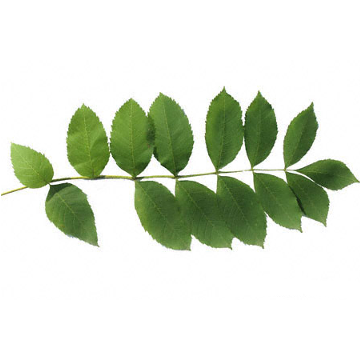FREE SHIPPING FROM 35 €
Search
Natural Ingredients
Ash
Diuretic and anti-inflammatory action.
The plant's diuretic and anti-inflammatory powers were quite recently demonstrated by an experiment which showed that the plant preparations are able to modify, in rats, the elimination of sodium and chlorides increasing renal activity. Leclerc flags how in rheumatic therapy it is able to obtain a strengthening of action to other antirheumatic drugs. The traditional use as an anti-inflammatory symptomatic remedy confirms, moreover, such prerogatives. The latter action is due to the presence of coumarins and is attributed mainly to the cortex. The plant is used for its diuretic properties, which aids weight loss and the treatment of kidney stones since the fraxoside is uricolytic. The cortex is considered a tonic and febrifuge: the plant was actually called China of Europe. The therapeutic indications concern the treatment of cellulite, hyperuricemia.
I nutraceutici
- Ursolic acid; benzoquinone
- Mannitol; tannins
- Phenols Acids; coumarins (esculoside and fraxoside): in particular in the cortex
- Flavonoids (rutoside); ascorbic acid; iridoids
Cortex:
- Coumarins (fraxoside and esculoside)
- Siringoside and tannins
From its cortex, manna is extracted by incision; in Sicily there are elderly farmers who still pract
Europe, Western Asia, Mediterranean Africa. Ash wood is quite flexible, so much so that the Achilles' spear and Homer's pen were made with this material (Pliny the Elder).
Ash has diuretic, diaphoretic, laxative, anti-rheumatic and anti-gout properties.


